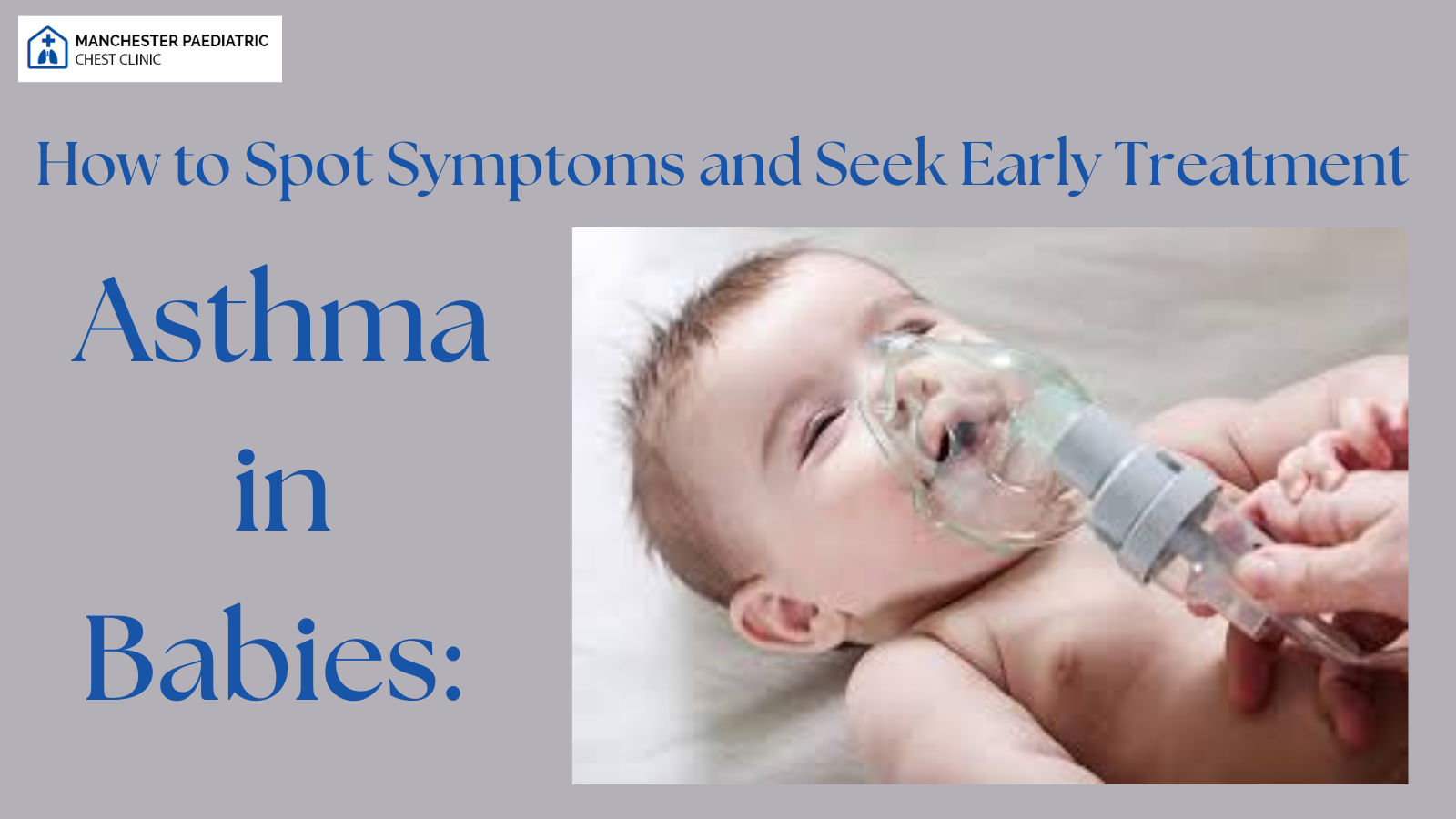As a parent, ensuring your baby’s health and well-being is a top priority. One crucial aspect of this is understanding the potential for asthma in infants. Asthma is a common respiratory condition that can significantly impact a child’s quality of life if not managed effectively. This blog aims to help parents recognise the symptoms of asthma in babies and emphasise the importance of seeking early treatment by searching for a “paediatric asthma doctor near me.”
Understanding Asthma in Babies
Asthma is a chronic inflammatory disease of the airways, which can lead to difficulty in breathing. In infants, asthma may not present in the same way as it does in older children or adults, making it essential for parents to be vigilant. While many factors can contribute to the onset of asthma, including genetic predisposition and environmental triggers, understanding the symptoms can empower parents to seek timely medical advice from a private respiratory paediatrician in Manchester.
Recognising the Symptoms of Asthma
Identifying asthma symptoms in babies can be challenging, but several indicators can help you discern if your child is experiencing difficulty. Some common signs include:
Wheezing: A high-pitched whistling sound when your baby breathes, particularly during exhalation, can be a clear sign of asthma.
Coughing: Persistent coughing, especially at night or after physical activity, may indicate an underlying respiratory issue.
Shortness of Breath: If your baby seems to struggle for breath or is unusually tired after play, it may be a sign of respiratory distress.
Chest Tightness: While it can be hard to gauge in babies, any signs of discomfort in the chest area should be taken seriously. Consult with a paediatric respiratory physician in Manchester as soon as this happens.
Flaring Nostrils: If you notice your baby’s nostrils flaring as they breathe, this could indicate that they are working harder to get air.
Recognising these symptoms early is crucial. If you observe any of these signs, it’s advisable to consult a healthcare professional.
Seeking Medical Advice
If you suspect that your baby may have asthma, seeking early medical intervention is vital. Consulting a paediatric asthma doctor near me or visiting a specialised clinic can provide the expertise needed to assess your child’s condition. These professionals will evaluate your baby’s medical history and symptoms, potentially conducting tests such as a lung function test or allergy assessment.
In Manchester, resources such as the Manchester Child Lung Clinic and private respiratory services can offer tailored care for children with respiratory issues. An asthma specialist doctor in Manchester will not only diagnose asthma but can also create a management plan that fits your child’s specific needs.
Treatment Options
Once diagnosed, treatment for asthma in babies can vary based on the severity of the condition. Medications such as inhalers, nebulisers, or oral corticosteroids may be prescribed to help control inflammation and open the airways. In some cases, the specialist may also recommend lifestyle changes to minimise exposure to asthma triggers, which can include allergens, smoke, and pollution.
It’s essential for parents to follow the treatment plan diligently and attend regular follow-up appointments. Monitoring your baby’s response to treatment and any changes in symptoms can be invaluable in managing their condition effectively.
The Role of Specialists
Specialist doctors play a crucial role in managing asthma in babies. A Pneumonia specialist in Manchester can provide comprehensive assessments to rule out other conditions that may mimic asthma symptoms. They have the expertise to distinguish between asthma and other respiratory ailments, ensuring accurate diagnosis and treatment.
Parents may also find it beneficial to consult a Private Respiratory Paediatrician in Manchester, who can provide a more personalised approach to treatment. This can be particularly useful for children with complex needs or those who do not respond well to standard asthma management strategies.
Conclusion
Asthma in babies is a manageable condition with the right knowledge and medical support. By recognising the symptoms early and seeking advice from qualified healthcare professionals, you can ensure that your child receives the best possible care. If you notice any signs of respiratory distress in your baby, don’t hesitate to contact a paediatric asthma doctor near me or visit a specialised clinic such as Manchester Child Lung Clinic. With early detection and appropriate management, children with asthma can lead healthy, active lives. Remember, your vigilance and proactive approach can make a world of difference in your child’s respiratory health.
